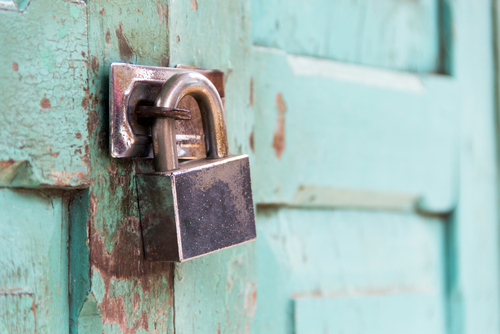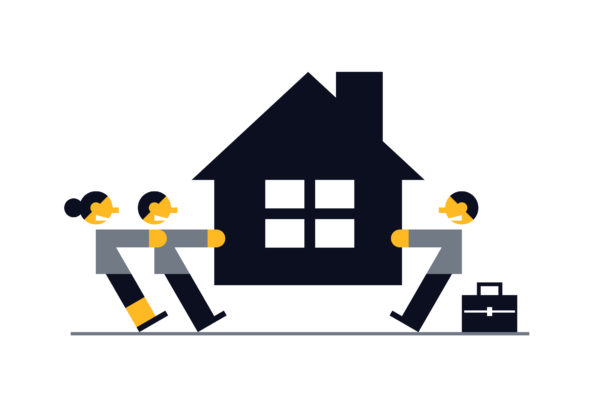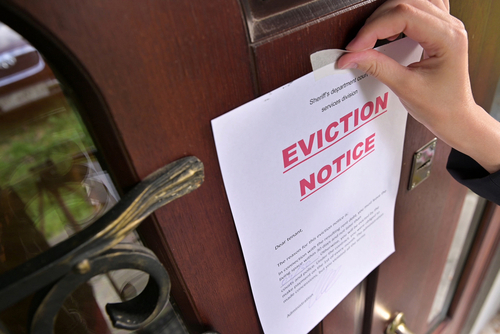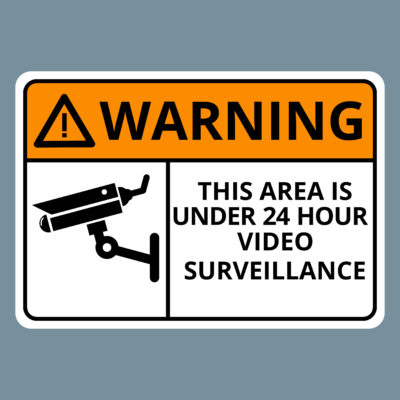As a landlord, securing responsible and paying tenants is the ultimate goal. However, there are a few things along the way that can derail those plans. For example, if the property has been vacant for a while and someone decides to move in illegally. Furthermore, a tenant could choose not to leave after their lease ends. When this occurs, landlords find themselves dealing with squatters. While they may have not legally taken up residence, squatters have rights, and landlords must pursue a legal eviction. Join us below as we discuss how to evict a squatter and how you can protect your rental property.

What is a Squatter?
Although someone who breaks in is what often comes to mind, several circumstances can lead to a squatter. A squatter is any person who occupies a residence unlawfully. This can lead to a potentially dangerous situation for both the landlord and the property. That said, some examples of a squatter include –
- An individual or individuals that break into an unoccupied property and take up residence
- The victim of a scammer that posts fraudulent rental ads and collects rent
- An authorized tenant who then stops paying rent
- A current tenant who does not vacate once the lease expires
The terms squatter and trespasser are often used interchangeably. However, there is a distinction landlords must remember. While both enter the home illegally, there is a difference in intentions.
- Squatters enter the home illegally to take up residence without paying the proper owner. This is viewed as a civil matter and requires landlords to evict a squatter legally.
- Trespassers enter the home illegally with the intent to steal or damage property in some way. That said, this is a criminal matter, and landlords should contact the authorities to potentially arrest the trespassing party.

Why are Squatters a Problem for Landlords
If there is an unauthorized, nonpaying person in your rental property, it is an obvious problem. Therefore, once one is discovered, quick action is crucial to regaining control and limiting potential damages. Besides headaches and frustration, squatters can cause the following issues for owners –
- Damages – Unauthorized occupants are not bound by any lease terms or obligation not to damage the property. That said, the longer squatters remain in the home, the greater the risk for damages to the unit, appliances, or property.
- Dispute of Ownership – Believe it or not, a squatter can try and claim ownership of the property if they are allowed to stay there long enough undiscovered.
- Loss of Income and Extended Vacancy – Once a landlord regains control of the premises, there may be extensive damage. Thus, requiring time and repairs that take away from potential rental income coming in. Furthermore, the court fees and eviction expenses can add up faster than many owners realize.
How to Evict a Squatter in Your Rental Property
Discovering an unauthorized person in your rental property can induce a range of emotions, including confusion, anger, and fear. However, the knee-jerk reaction to confront and throw someone out is not only dangerous but also illegal. Instead, landlords must follow a court process to evict a squatter legally. So, follow these steps below to avoid additional unwanted legal troubles.
 Steps to Evict a Squatter
Steps to Evict a Squatter
- Evaluate the Situation – When you discover unauthorized occupants in a rental property, the first step is to determine if they are squatters or trespassers. Then, without confronting the suspected persons, look for any evidence of belongings, changed locks, or barricaded entranceways. This could signal the occupant has been there a while and is not simply a burglar. If a quick determination cannot be made safely, contact the police immediately.
- Contact the Authorities – For safety, rely on local law enforcement to handle any initial contact. For example, if the persons are trespassing, police will remove them. If the occupant is a squatter, the local authorities can advise of any next steps to regain control of the premises.
- Serve an Eviction Notice – The next step to remove someone is to serve an eviction notice. This is a legal document that officially instructs the occupant to vacate the property. This is the only action needed in some cases, and squatters may choose to leave before further court action.
- File a Civil Claim – If the squatters do not leave, filing a civil claim is necessary. Keep in mind that laws and rules can vary by location, so be sure and research any specific before filing. Thus, ensuring you avoid any unnecessary delays. Once filed, landlords must attend an eviction hearing.
- Court Ordered Eviction – A landlord will likely win the eviction once the case makes its way through the court. This, meaning that the squatters will now be forced from the property by court order. However, since all will not always go willingly, it is a good idea to have law enforcement remove the squatters. While this does cost a small fee, it is worth it for both safety and efficiency.
What Not to Do When Evicting a Squatter
Do Not Throw Out Personal Property
It is very possible that after eviction, some items may be left behind. This could be trash, damaged items, or personal belongings. Although returning the property to a marketable state is of utmost importance, seek legal advice for handling any property left behind. Depending on the local jurisdiction, landlords may be required to hold the items for a period of time. Always photograph and document the property and any items left behind during an initial inspection.
Stay Away from “Self Help” Evictions
The process to evict a squatter may seem arduous, especially when the individual had no right to be there. However, landlords must never take matters into their own hands. Not only is this potentially dangerous, but landlords could also find themselves in legal trouble. So, do not –
- Install new or additional locks to keep squatters out
- Shut off access to utilities
- Use physical or verbal intimidation
- Remove the individual’s personal belongings
 Tips to Preventing Squatters at Your Rental Property
Tips to Preventing Squatters at Your Rental Property
It is not always possible to prevent every scenario in your rental property. However, avoiding the need to evict a squatter starts with some preventative measures. This is especially important if the home sits vacant for any length of time. Check out these tips that may help deter potential squatters from setting up house in your home.
- Install a security system that allows owners to check in on the premises remotely
- Post signs such as “No Trespassing,” “Private Property,” of “24 Hour Surveillance”
- Have a trusted neighbor or property manager check the property regularly
- Inspect the property regularly
- Avoid applicants with poor rental history that could end up holding over
How Property Management Can Protect Your Investment
Another great way to protect your property from squatters is to limit vacancy time as much as possible. That said, managing leads, creating rental ads, screening applicants, and targeting your marketing efforts to attract quality tenants can be overwhelming. Fortunately, landlords do not have to go about this alone.
The professional team at Bay Property Management Group uses the latest technology to maximize listings and leads to rent your home in an average of fewer than 30 days. In addition, we offer a full-service approach to management. This means we handle all day-to-day operations, including rent collection, accounting, maintenance, customer service, and more. If you would like to learn more about how expert rental management can both protect and maximize your investment, give us a call today.

 Steps to Evict a Squatter
Steps to Evict a Squatter Tips to Preventing Squatters at Your Rental Property
Tips to Preventing Squatters at Your Rental Property